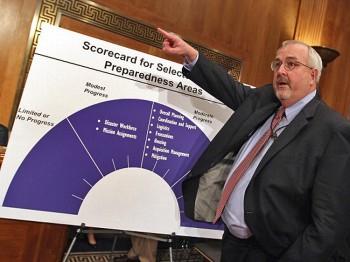Boston—The Christian Science Center located in the heart of Boston has been honored with the designation of a Boston landmark by the Boston Landmark Commission (BLC), Boston’s Mayor Thomas Menino announced.
The complex is a 14.5-acre plaza that is a collective of buildings and landscapes constructed individually from the late 19th century to the late 20th century covering styles from Romanesque Revival, Renaissance Revival, Classical Revival, Neoclassical, and Modernist. It is the world headquarters to the Christian Science religion founded by Bostonian Mary Baker Eddy and its affiliate the Christian Science Monitor.
Particularly notable is an almost 700-foot modernist reflecting pool against a dynamic backdrop of vast open space, water and sky, and the nucleus of three historical church buildings. It is one of the favorite spots for locals and visitors alike to savor a moment of tranquility where both elements of nature and man’s creation accentuates each other and inspires.
“The Christian Science Church has been a committed steward of this heavily visited Boston site,” Mayor Menino said. “By granting local landmark status, the city of Boston is recognizing the historic and architectural significance of this collection of buildings and landscape while helping to manage the future changes that will allow the church to continue its mission.”
A statement by one of the church’s press releases said, “The church did not seek landmark status; the process with the BLC began in 2007 when 15 residents of the Boston community filed a petition with the city to designate the plaza as a landmark.”
The church was facing increasing financial difficulties in the 2000s and was seeking ways to trim its budget and consolidate its operation. According to a report by the Boston Globe, in 2006 the church announced its intention to lease and sell buildings in an effort to streamline operations in difficult economic times. The church has already consolidated, moving themselves into the older religious complex and the publishing house and leasing out two of the newer buildings.
Last year, the church submitted a revised revitalization plan for an approximate 950,000 square feet of new construction of three buildings for residential and office/hotel use, as well as the reconstruction of the reflecting pool and surrounding landscaping.
The aims of the proposed revitalization project are to seek further real estate revenues to offset the real estate expense and the upkeep of the plaza and pool “rather than by donations, which the church would like to devote more directly to its mission activities,” revealed a statement by the church’s executive summary of the proposal.
The reflecting pool has suffered some irreparable damage after the 40 years of use with water leaking into the underground garage. The pool with the new design was aimed to enhance its sustainability to conserve 3 million gallons of water per year from the current 5 million to a projected 2 million. The new proposal calls for the shortening of the pool by 18 feet and a crosswalk that passes through the middle to the mother church, and a reduced depth of the pool from 26 inches to 6 inches to 12 inches. The redesign of the pool and plaza is estimated to cost $40 million.
“While landmark designation recognizes the church’s plans and allows those plans to come before the BLC for design review, the designation itself neither accepts nor precludes the current proposal for the site. Furthermore, neither use nor interiors of buildings are within the BLC’s jurisdiction and landmark designation in no way seeks to restrict freedom of religion,” said in a statement from the city’s press release.
This doesn’t mean that the church cannot proceed with its plan of development. Two of the proposed buildings are outside of the area of landmark designation, and the proposed construction within the designated landmark area was reviewed as being mostly favorable by the Citizen Advisory Committee whose main emphasis was on the preservation of the visual effect of the reflecting pool. The proposal is pending review by the Boston Landmark Commission.
“For over a century the church has been a part of the history of Boston and contributed to this city’s beauty, inspiration, and progress,” Michael Pabst, chair of the Christian Science Board of Directors, said. “We look forward to continuing to improve the Christian Science Plaza and to providing places for quiet contemplation and active enjoyment for the public in ways that respect the plaza’s historic ensemble and fit harmoniously with neighboring buildings.”


